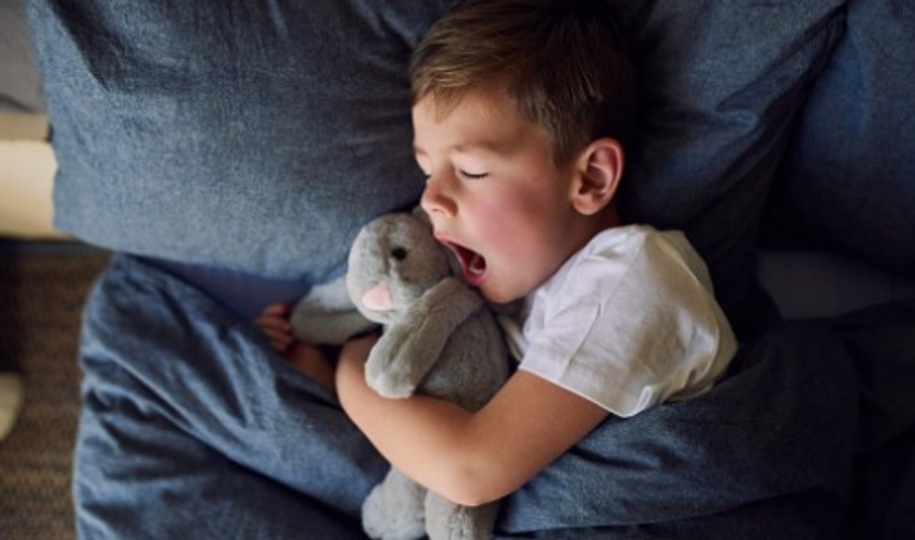
As a parent it can be distressing to see your little one unwell. Colds are one of the most common illnesses in children, and unfortunately often come with a night cough. Learn more about how to help manage a night-time cough.
![]()
As a parent it can be very distressing to see your little one unwell. Colds are one of the most common illnesses in children, and unfortunately often come with a night cough – making it hard for them to rest, which may slow down their recovery.
Coughs, colds and respiratory tract infections like the ‘flu’ are very common for children. Young children usually experience six to 12 of these types of illnesses every year.
The most common symptoms of a cold in children are:
tickle in the throat
runny or blocked nose
sneezing
fatigue
sore throat
cough
One of the most difficult symptoms to manage can be a night cough in kids. Some of the below tips may help you reduce your little one’s cough and help them get some much-needed rest.
Honey – research has found that giving children over the age of 12 months, 1 to 2 teaspoons of honey 30 minutes before bed can help to reduce the severity and duration of a cough, as well as improving sleep (for both children and parents).
Sleep position – try to elevate your child’s head while they are sleeping to reduce night cough in kids. This can be done with pillows under their head and neck, or by elevating the end of the mattress where their head rests by using rolled-up towels.
Humidifier – use a humidifier in your child’s bedroom at night. A humidifier will add moisture to the air which helps keep your child’s airways from drying out and loosens mucus. This may ease congestion and relieve your kid’s night cough.
Warm bath – a warm bath or shower with plenty of steam before bed may also help to loosen up the mucus.
Fluids – ensure your little one drinks plenty of fluids during the day as this can help alleviate the night cough. Water and other fluids may help to thin out mucus, making it easier for your child to cough it up and out.
Chicken soup – pull out Grandma’s chicken soup recipe! Research has found chicken soup may reduce inflammation in the upper respiratory tract reducing congestion and cough.
If an ongoing chesty cough is keeping your child up at night, Prospan can help loosen and clear mucus, relieve congestion, and soothe the chest. Learn more.
It can be a struggle to see your child sick but most of the time they will be back to running, jumping and playing in no time. However, if there are increased temperature readings, prolonged illness, unusual symptoms or breathing issues always consult with your health professional immediately.
Not to be used in children under 2 years without medical advice. This medicine may not be right for you. Read the warnings before purchase. These can be found in the dosage section below. Follow the directions for use. If symptoms or coughing persist, talk to your health professional.
References available upon request.